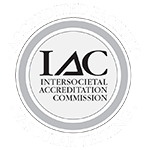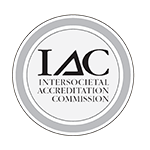
If you or anyone you know has high blood pressure, diabetes, high cholesterol, or heart disease, or if they smoke cigarettes or have a family history of cardiac disease or stroke, then chances are that Peripheral Artery Disease (PAD) already has or will touch your life.
Over 8 million Americans have PAD, which is a leading cause of amputation, and can be associated with a host of other issues such as heart disease or stroke.
Unfortunately, general awareness of PAD is low with only 25% of patients being diagnosed and treated, mainly due to a lack of symptoms and proper testing. At The Cardiovascular Care Group, we believe consulting with a board-certified Vascular Surgeon, who specializes in this disease process, is a smart first step in managing your overall health.
What is PAD and Who is at Risk?
Peripheral artery disease, also known as peripheral vascular disease, is the narrowing or blockage of an artery in the leg resulting in reduced blood flow to that leg. This hardening of the artery (atherosclerosis) is a buildup of plaque inside, which reduces the inner size of the artery over time. This plaque buildup occurs throughout the body and may cause heart attacks, strokes, and in the case of PAD, gangrene and even amputation.
The main risk factors for PAD include a family history of atherosclerosis, an inactive lifestyle, smoking, diabetes, high cholesterol and high blood pressure. PAD is more common after age 40 and can affect as much as 20% of the population over 65 years of age.
The most common symptoms of PAD are pain or cramping in the legs (called “claudication”) when walking or exercising that goes away with rest. However, many individuals may not have any symptoms until the artery has narrowed significantly.
How is PAD Diagnosed?
A careful review of your medical history—including family history—is important as is a thorough physical examination. Confirmation is then made in an accredited vascular laboratory with noninvasive testing. There are a few different ways to perform a test, the most common being an ankle-brachial index (ABI) and pulse volume recordings (PVR), which measures the blood pressure at various points in your legs or the use of ultrasound technology to visualize blood flow in the arteries.
What are the different options for treating PAD?
Most patients can have their symptoms managed through lifestyle changes, lipid (cholesterol) management and exercise. For others, there are a number of minimally invasive procedures that can be done in the safety and comfort of an outpatient setting, without a hospital stay. The most common are balloon angioplasty and/or stent placement where a thin wire is passed through the blocked artery along with a small balloon. The balloon is then inflated to break the plaque buildup improving blood flow to the leg.
Another option (if other techniques are ineffective) is bypass surgery. This is a more involved technique that allows blood to flow around the narrowed artery thereby bypassing the blockage.
Can I Prevent PAD from Happening?
There are steps to prevent or lower the risk of PAD, all revolving around healthy living. Smoking cessation is one of the most important as cigarettes are associated with many devastating health conditions including PAD. Controlling your blood pressure and maintaining good cholesterol levels are also important, which relate to eating healthy and exercising regularly. And, of course, early detection can decrease the level of treatment and improve your quality of life.
PAD can be a sign of heart disease that may be present without you knowing about it! Having regular checkups with your primary care physician and vascular specialist are an important adjunct to staying healthy and fit!
If you believe you have some of the symptoms mentioned above or just want to know more about the signs and treatments for PAD, schedule an appointment today with one of our vascular doctors at The Cardiovascular Care Group.







_2.jpg)